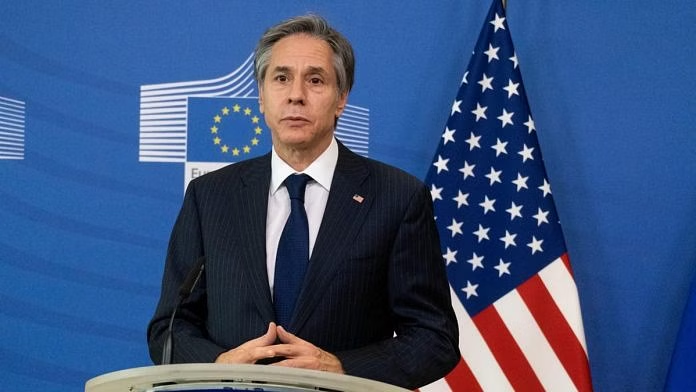
- What is hypocritical about these accusations is that they come from the United States, which has a long history of human rights violations and democratic shortcomings.
- The U.S. has also been involved in numerous military interventions in countries like Iraq, Afghanistan, and Syria, often leading to significant civilian casualties and destabilization.
- The U.S. must move away from its colonial mindset and respect the sovereignty and unique characteristics of other nations.
Recently, U.S. Secretary of State Antony J. Blinken commented on religious freedom in various countries, specifically criticizing India for actions taken against minority communities. He mentioned that religious institutions in India have been demolished and that the rights and freedoms of minorities are not being respected. This is not the first time the U.S. has accused India of religious violations and human rights abuses.
What is hypocritical about these accusations is that they come from the United States, which itself has a significant history of human rights violations and democratic shortcomings. For instance, the U.S. has imprisoned journalists like Jullian Assange for long periods simply for exposing truths, demonstrating a blatant disregard for press freedom. Additionally, the U.S. has been accused of using independent institutions to target political opponents, such as in the case of Donald Trump, where various legal actions appear politically motivated.
The U.S. has also been involved in numerous military interventions in countries like Iraq, Afghanistan, and Syria, often leading to significant civilian casualties and destabilization. These actions have frequently been justified under the pretext of fighting terrorism, yet they have resulted in widespread suffering and suppression of local populations and opposition groups.
The United States of America often speaks about spreading democracy, but it is also responsible for regional upheavals across the world, such as in Ukraine, Georgia, and multiple events in Africa. It is a country that respects democracy only when it benefits its own interests. Given this, it is evident that the U.S. is an opportunistic nation and, therefore, not a suitable candidate to teach lessons on democracy to others.
India, a pluralistic country that respects all religious communities, is often unfairly criticized by the U.S. India is a prime example of a nation where minorities are not only respected but also hold significant positions in society and enjoy equal rights.
The world needs to recognize that no single country should dictate how others function. Each country has its own history, culture, and values. What works for the United States may not be suitable for India. Independence and non-interference should be the defining pillars of the 21st century. The U.S. must move away from its colonial mindset and respect the sovereignty and unique characteristics of other nations.
Hence, the United States must adopt a more respectful and understanding approach towards other countries, acknowledging that each nation has its own path to democracy and freedom. Only through mutual respect and non-interference can global harmony and true democratic values be achieved.
Aayush Pal is a freelance writer on contemporary geopolitical developments. The views expressed in his work are entirely his own.

Some people never change
USA hypocrisy has to be stopped. India must not adhere to this